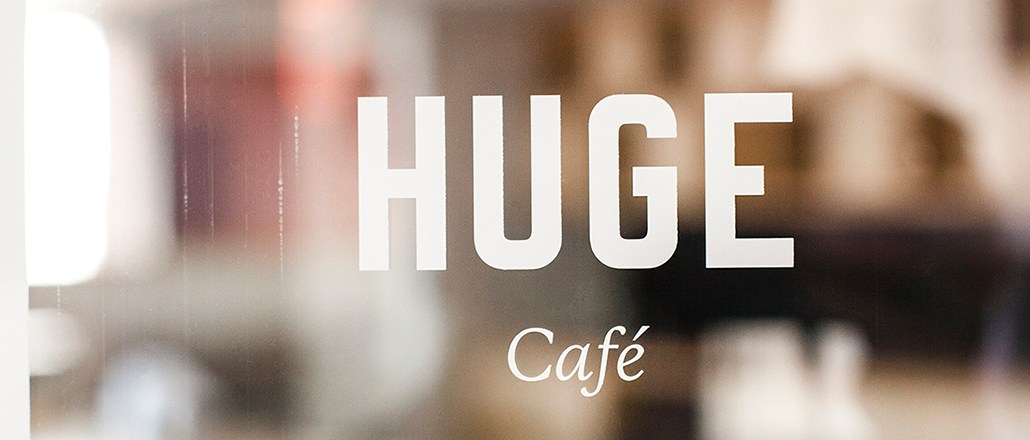Secure your place at the Digiday Publishing Summit in Vail, March 23-25
Digiday Research: How Huge is personalizing the cafe experience

This research is based on unique data collected from our proprietary audience of publisher, agency, brand and tech insiders. It’s available to Digiday+ members. More from the series →
This case study is part of a research series on a set of emerging technologies in media and marketing. Read our other reports on virtual reality, augmented reality, chatbots and data-driven personalization.
The store of the future may still be a pipe dream, but some marketers are discovering that the power of customer data isn’t limited to digital spaces. To learn just how personalized the physical retail experience could get, Huge built a cafe at the base of its Atlanta office.
“We test a lot of things down there that we just want to experiment with,” said Derek Fridman, global executive experience director at Huge. As a first order of business, the team built an order-ahead app that notified the barista via Apple Watch when an employee had placed an order, supplying her with a face to put to the drink and make serving seamless once the customer arrived. But Huge is going further.

“We actually have hidden cameras in this store that look out and do audience measurement,” said Fridman. “This isn’t anything new. There are millions of companies that do audience measurement through cameras, but what we’re starting to do is lace together these different technologies so that we can paint a better picture of somebody without them having to really do anything.”
For example, Fridman is rarely without his Atlanta Braves hat. Without him giving the store any other information, as soon as he steps through the door, the computer-vision-powered cameras know that “A-hat” is back. Now, the personalization system can recognize A-hat, that is, Fridman, every time he makes a store visit. It pairs that visual with the knowledge of what he likes (through the preorder system) and when and how frequently he comes in.

“In the fall, we’re going to start testing another idea,” said Fridman. The barista will be equipped with an in-ear piece like the AirPod, generically referred to by Fridman as a hearable. “It can start pumping information in. When A-hat walks into the store, we’re just going to prompt Nami [the barista] with what A-hat typically orders. Then, just like you can tell your AirPod, ‘Hey, Siri,’ Nami can say, ‘Hey, how are you? My name’s Nami. What’s yours?’ The ‘what’s yours?’ triggers the headsets to go into a record mode. When I say back, ‘Hi, I’m Derek,’ now you know A-hat is ordering an ice mocha, and his name is Derek.”
The opportunity to augment the retail experience through dynamically generated profiles like these, especially when they incorporate more traditional forms of digital data and preferences, is limitless.

“One of the biggest things I hate is when you walk into a retail store and they ask you, ‘How can I help you?’” said Fridman. “If we can start to use faces, applications and employees that are now ‘smarter,’ then we can start to paint pictures of our customers so that when they come in, our employees are armed with the right information in their ear to have a better conversation or engagement with you and get you exactly what you want, versus starting at ‘Hi, how can I help you?’”
More in Marketing

‘The conversation has shifted’: The CFO moved upstream. Now agencies have to as well
One interesting side effect of marketing coming under greater scrutiny in the boardroom: CFOs are working more closely with agencies than ever before.

Why one brand reimbursed $10,000 to customers who paid its ‘Trump Tariff Surcharge’ last year
Sexual wellness company Dame is one of the first brands to proactively return money tied to President Donald Trump’s now-invalidated tariffs.

WTF is Meta’s Manus tool?
Meta added a new agentic AI tool to its Ads Manager in February. Buyers have been cautiously probing its potential use cases.





